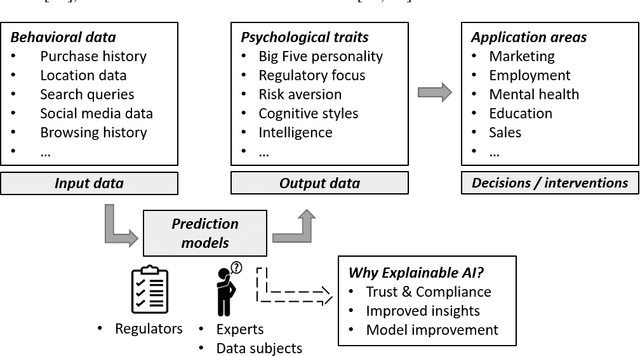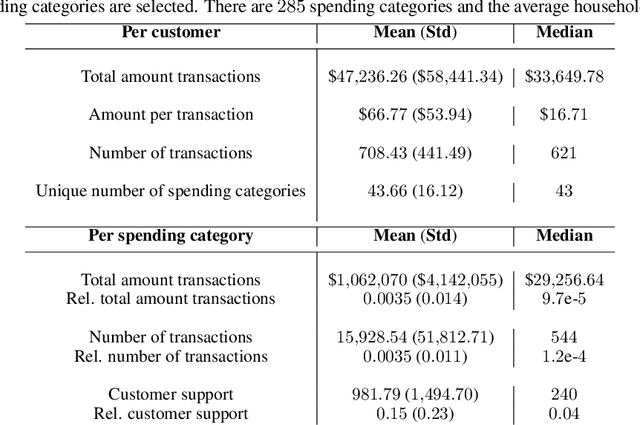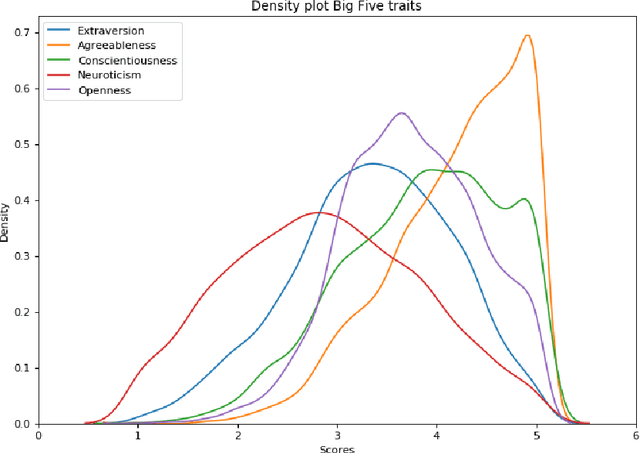R. A. Farrokhnia
Explainable AI for Psychological Profiling from Digital Footprints: A Case Study of Big Five Personality Predictions from Spending Data
Nov 12, 2021



Abstract:Every step we take in the digital world leaves behind a record of our behavior; a digital footprint. Research has suggested that algorithms can translate these digital footprints into accurate estimates of psychological characteristics, including personality traits, mental health or intelligence. The mechanisms by which AI generates these insights, however, often remain opaque. In this paper, we show how Explainable AI (XAI) can help domain experts and data subjects validate, question, and improve models that classify psychological traits from digital footprints. We elaborate on two popular XAI methods (rule extraction and counterfactual explanations) in the context of Big Five personality predictions (traits and facets) from financial transactions data (N = 6,408). First, we demonstrate how global rule extraction sheds light on the spending patterns identified by the model as most predictive for personality, and discuss how these rules can be used to explain, validate, and improve the model. Second, we implement local rule extraction to show that individuals are assigned to personality classes because of their unique financial behavior, and that there exists a positive link between the model's prediction confidence and the number of features that contributed to the prediction. Our experiments highlight the importance of both global and local XAI methods. By better understanding how predictive models work in general as well as how they derive an outcome for a particular person, XAI promotes accountability in a world in which AI impacts the lives of billions of people around the world.
 Add to Chrome
Add to Chrome Add to Firefox
Add to Firefox Add to Edge
Add to Edge